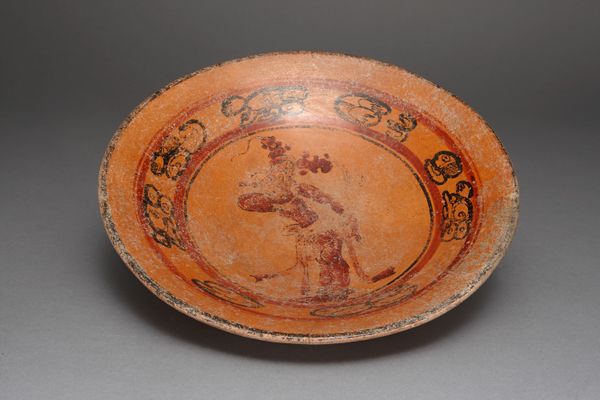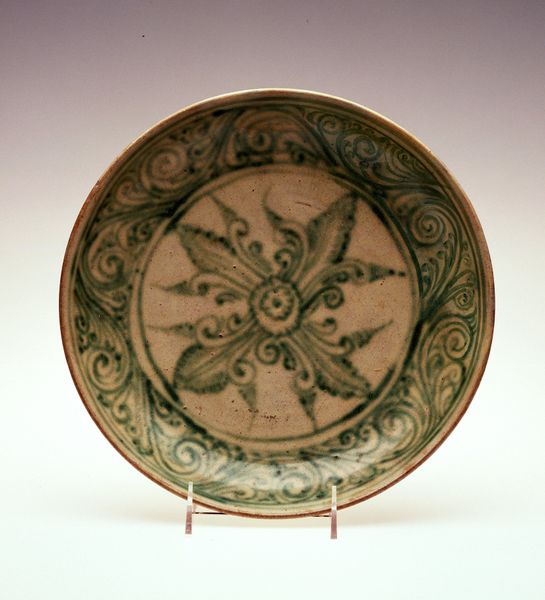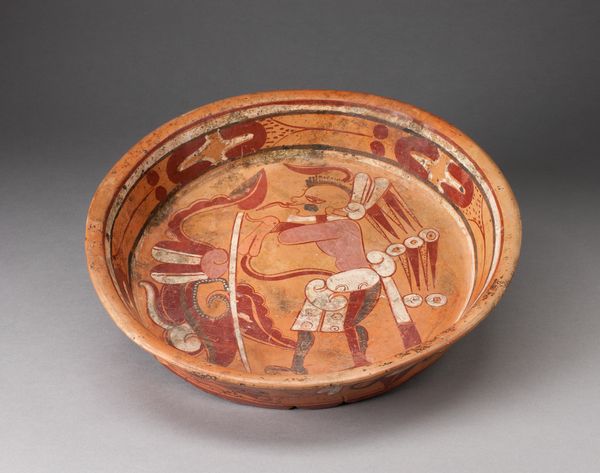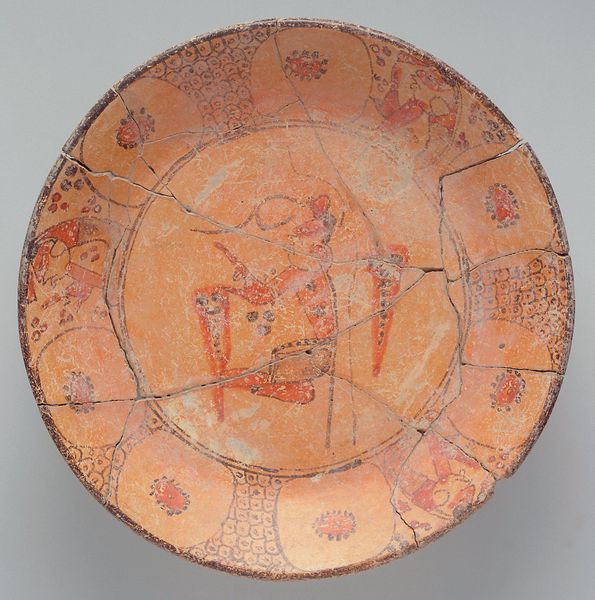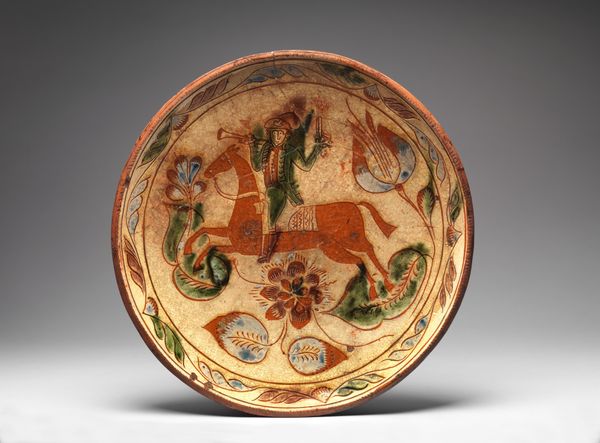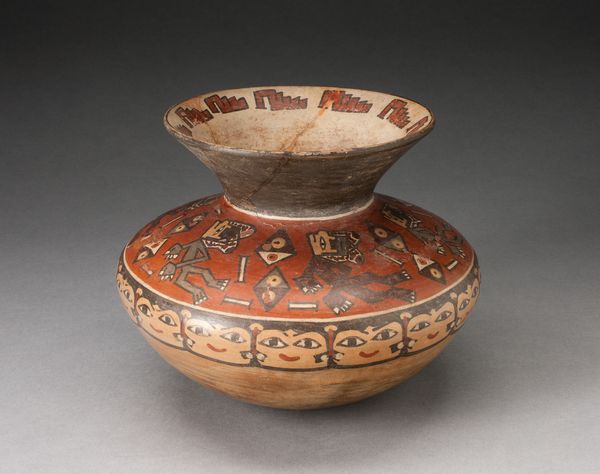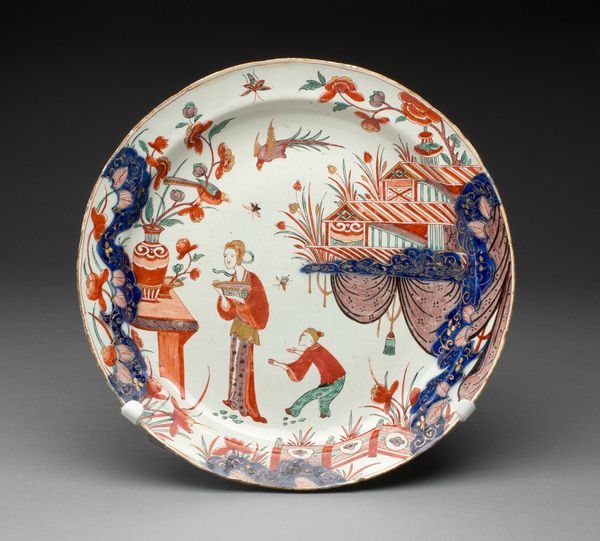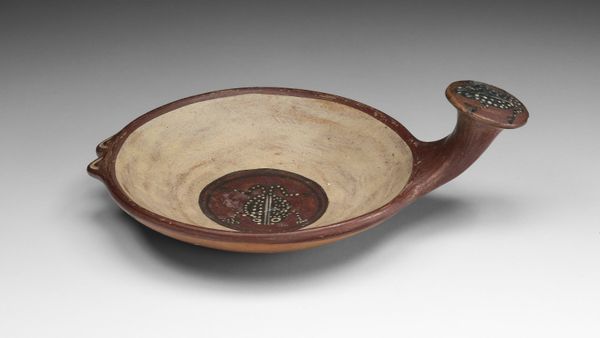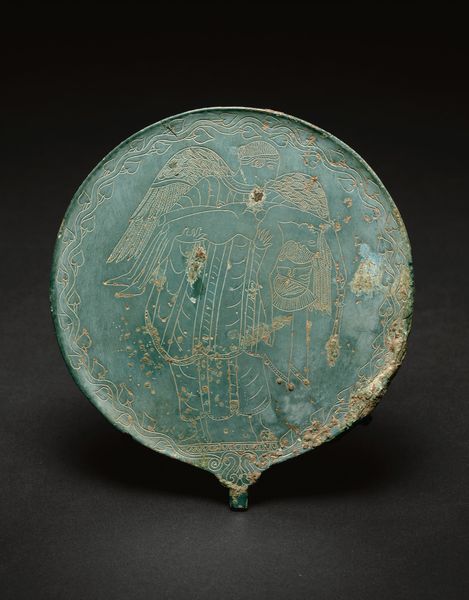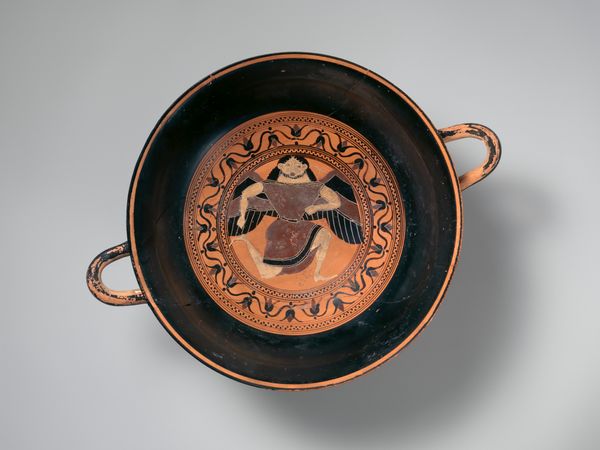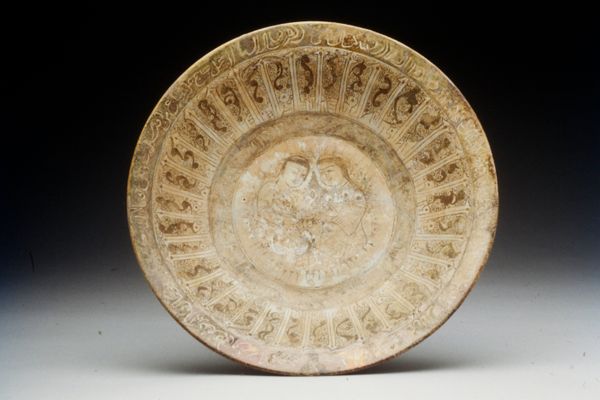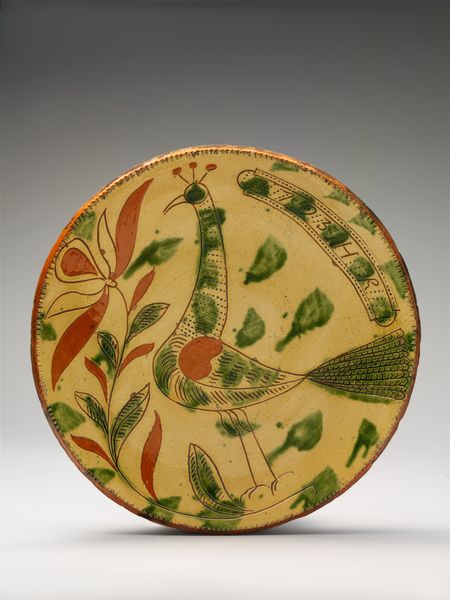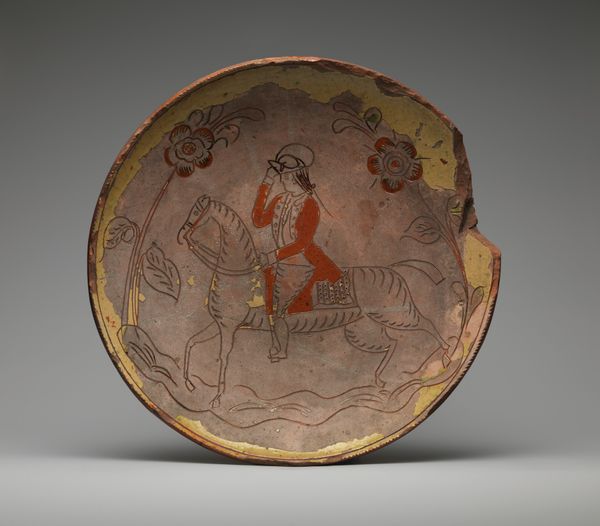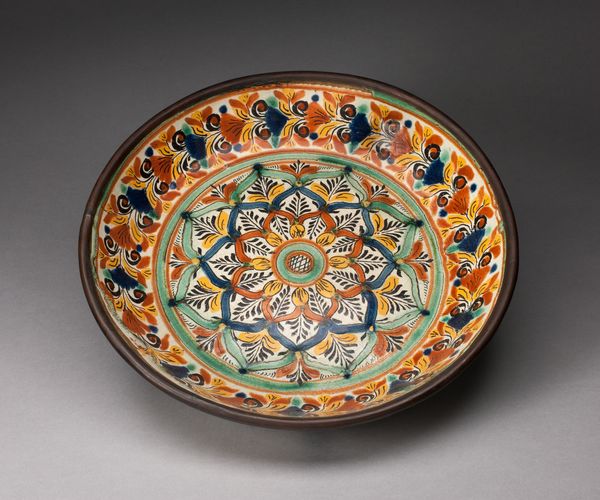
painting, ceramic, terracotta
#
painting
#
ceramic
#
figuration
#
ceramic
#
terracotta
#
indigenous-americas
Copyright: Public Domain
Editor: This painted ceramic plate, dating from around 500 to 800 AD, intrigues me. Its warm, earthy tones give it an ancient feel, and the figure depicted within is so stylized. What narratives do you see unfolding on this surface? Curator: What strikes me immediately is how the imagery encapsulates a world of cultural memory. Notice the central figure – perhaps a deity or a ruler. How is he adorned, and what does that convey to you about status, identity or belief systems of the Maya? Editor: I notice the intricate headdress and ornate clothing, perhaps indicative of high social standing. And it seems like he is holding something, though it’s hard to make out exactly what. Is that symbolic as well? Curator: Undoubtedly. The items held, the gestures made—they all contribute to a layered visual language, hinting at rituals, narratives, and the very foundations of Maya cosmology. Consider how the circular format, framing this narrative, evokes cycles of time and perhaps rebirth. What patterns along the outer rim stand out? Editor: There are geometric shapes and maybe some stylized floral motifs...do those connect to the central figure’s story in any way, or do they act more like a decorative border? Curator: In Maya art, the "decorative" is rarely *just* decorative. Those repeated patterns could be glyphs or abstracted symbols, acting as cues for interpreting the central scene, embedding the narrative within a broader cultural context. The plate itself isn’t merely an object, it’s a carrier of stories, beliefs, and histories. Editor: It’s fascinating how a single object can be a portal into an entire civilization’s worldview! I’ll definitely be looking at art with a closer eye to symbols now. Curator: Exactly. Images become alive with the weight of history. We see continuity across time. That is powerful!
Comments
minneapolisinstituteofart about 2 years ago
⋮
Among the Maya, members of the nobility offered elaborately painted vessels to each other as gifts to maintain political and social connections among leading families. They often commissioned these items from scribes, literate aristocrats who painted images and wrote hieroglyphic texts on ceramics and in codices (singular: codex; books on bark paper). Painted ceramics also functioned as serving dishes for important feasts and for making offerings. Maya ceramic painting reached its peak between 600 and 900, when artists produced innovative designs combining hieroglyphs with geometric elements, and images of humans and gods. The central figure here is the Maize God, the most important Maya god. He is recognizable by his unique attributes including his head and hairdo, elongated to imitate the shape of an ear of corn and cornsilk, and the red body paint covering all but his face.
Join the conversation
Join millions of artists and users on Artera today and experience the ultimate creative platform.
